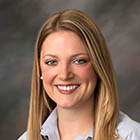Gastrointestinal issues, sometimes referred to as “GI” issues, often don’t go away on their own – and can seriously affect your quality of life. Our gastroenterologists offer comfort, confidentiality and, most importantly, relief from digestive and colorectal symptoms.
Share your location for a better experience
Please enter your city or town so we can help you find the right care at the right place.

